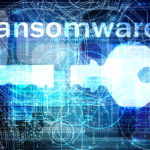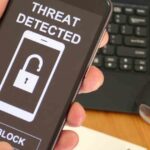We all know how important it is to stay safe online, but when it comes to email safety, many of us are still not taking the necessary precautions. By following these email safety tips, you can help protect yourself from cyber threats and keep your email account secure.
The Top Email Safety Tips Recommended By Experts

Taking care of your security online is an important part of being a modern person in the workforce. However, it can be hard to keep track of the safety requirements of your email program if you are not sure what the risks are. To catch you up on the latest security recommendations, here are the best email security tips that the experts swear by:
Don’t Open Emails From People You Don’t Know
In today’s digital age, it’s important to be aware of the dangers of email scams. Every day, thousands of people fall victim to phishing email attacks, whereby scammers attempt to trick them into revealing personal information or infecting their computers with malware or malicious code through spam emails.
One of the most common ways that scammers try to lure victims is by sending emails purporting to be from a legitimate source. The email may claim to be from a well-known company or organization, and may even include branding elements such as a company logo, and come from what looks like the correct business emails for the brand.
However, these emails are often spoofed, meaning that they’re not actually from the claimed sender. If you receive an email from someone you don’t know, it’s best to exercise caution before opening it. If you’re ever in doubt, you can always contact the organization directly to confirm whether or not the email address is legitimate.
Never Click Unknown Email Attachments
The ever-increasing sophistication of email scams can make it hard to know what’s safe to click on and what isn’t. However, there is one general rule that can help you avoid falling victim to a scam: don’t click on links or attachments in emails from people you don’t know.
This includes links in emails that purport to be from friends or family members. If you receive an email with a link or attachment from someone you don’t know, the best course of action is to delete the suspicious messages without opening them at all.
Even if the email looks harmless, it could be an example of a malicious email that could infect your computer or steal your personal information. When in doubt, it’s always best to err on the side of caution and delete suspicious emails or spam messages.
Protect Your Personal Information
Nowadays, it’s very important to be careful with your personal information since you never know who might be looking. In particular, you should be careful about what you include in an email. Exercising this level of caution can provide an extra layer of security to your data.
Your address, phone number, credit card, and social security number are all pieces of information that could be used to steal your identity. If someone were to get their hands on your email, they could easily find out a lot about you. This information could include where you live, how to reach you, and even your full name.
So it’s best to err on the side of caution and leave out any sensitive information when sending an email. This way, you can rest assured that your personal information is safe and you are safe from the threat of fraud or identity theft.
Use a Strong Password

Now that we spend most of our lives online, emails are a ticket to the world, and securing them is essential. One of the best ways to do this is to use a secure password for all of your online accounts. A strong password should be at least eight characters long and include a mix of uppercase and lowercase letters, numbers, and symbols.
You should also use different email passwords for all of your personal accounts. For example, make sure that the password you use for online banking is completely different from the one you use for your emails. The use of a strong factor is the best way to keep identity thieves and hackers at bay.
It’s also important to change your passwords regularly, at least every few months. This helps to further protect your information in case your password is ever compromised.
Whenever possible, you should switch on two-factor authentication so you have an extra layer of protection over all of your email addresses. By taking these simple steps, you can help keep your online information safe and secure.
Keep Your Antivirus Software Updated

As our lives move increasingly online, it’s more important than ever to make sure our computer systems are secure. One of the best ways to do this is to ensure that our anti-virus software is up to date to protect against the online dangers of malicious software.
Anti-virus software works by identifying and flagging potential threats, such as viruses, malware, and the notorious phishing scam. By regularly updating our security settings and software, we can be sure that we’re protected against the latest threats.
Most email providers also provide basic security features such as a spam filter, and the ability to report spam. These extra precautions help to keep your data secure.
Additionally, many anti-virus programs also offer real-time protection, which can help to block attacks as they happen. As we rely more and more on technology, it’s critical that we take steps to protect ourselves. By keeping our anti-virus software up to date, we can help to safeguard our online security on our computers and our data.
Don’t Be Tempted to Check Your Junk Email
As you may have noticed, it is completely normal for emails to start piling up in the junk folder, no matter what you use the email for. However, the best rule for online email safety? Never be tempted to open up the emails, correspond, or open any links or attachments in the emails.
Junk emails are in a specially designated folder for a reason – they have been identified by your email provider as a potential threat, and that is why they are kept in separate folders. Unless you know for sure that an email has been placed by accident, your best course of action is to completely ignore those emails and delete them as soon as possible.
Emails in your junk folder can sound enticing and even worrying. Some people have reported that they have gotten blackmail messages threatening to release their information. If you suspect any of these have merit, contact the authorities.
However, beware that many of these are scams and use scary words and threats to lure you into a conversation. The best way to deal with this situation is just to delete the emails and move on.
Use Different Emails for Different Purposes
One of the biggest ways that you can put yourself at risk is if you use the same email domain for both professional and personal emails. Professional emails are generally accessible to the public. This means that if you are not using separate email accounts, anyone can find your personal email with something as simple as a google search.
In order to stay ahead, we recommend that you have different emails for different facets of your life, and you only share your personal email with the people you trust. That way, when you get emails you can be able to understand the context and decide whether or not you want to take the risk of opening the email or any attachments.
Take Action If You Think You’ve Been Hacked
If you think you may have been hacked, it’s important to take immediate action to protect your online accounts and personal information. The first step is to change your passwords, especially if you suspect that your current passwords have been compromised.
It’s also a good idea to contact your internet service provider and let them know what happened. They may be able to help you determine if your account has been compromised and offer advice on how to protect yourself in the future. By taking quick action, you can help to minimize the damage caused by a hack and keep your personal information safe.
If there is a chance that your banking information is compromised, you should alert your bank and involve the authorities in your area. They may be able to help you recover lost funds and to find the person responsible for the fraud against you.
Final Thoughts
By following these simple email safety tips, you can help protect yourself from email scams and viruses. Stay safe online by being cautious with your personal information and keeping your software up to date. After all, email security is essential for you to be able to navigate the online world without worry.
- IPSec vs. OpenVPN: Which Is Better? - December 10, 2022
- How to Turn Off VPN on Mac: A Step-by-Step Guide - December 10, 2022
- What Is a VPN Concentrator and What Does It Do? - December 10, 2022



![Top 5 WhatsApp Alternatives [Best For Privacy & Safety] Top 5 WhatsApp Alternatives [Best For Privacy & Safety]](https://youronlinechoices.com.au/wp-content/uploads/2021/09/Top-5-Whatsapp-Alternatives-Best-For-Privacy-Safety.jpg)

